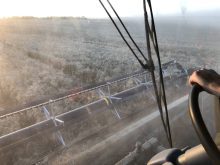The federal government says it came down hard on non-compliant employers of temporary foreign workers in 2024.
Employment and Social Development Canada handed out $2.1 million in financial penalties to employers of temporary foreign workers (TFWs) between April and September 2024. This was more than double the fines given in the same period of 2023, according to a federal news release.
Federal officials also banned 20 employers from the TFW program, a fivefold increase from the same period last year.
This includes an employer from the farming sector, who was fined $75,000 and banned for five years for failing to provide required documentation, being absent from a meeting scheduled with inspectors and “failing to demonstrate they were operating a legitimate business,” the news release said.
Read Also

Federal food affordability measures, food security strategy announced
The federal government has pledged to fund several measures aimed at strengthening food security and affordability.
Between April 1 and September 30, federal officials conducted 649 employer compliance inspections. Eleven per cent were non-compliant.
The federal government has been cracking down on misuse of the temporary foreign worker system.
In March, it reduced the percentage of allowable temporary foreign workers in some sectors, including hospitality, food service and food manufacturing. In September, the cap was reduced to 10 per cent, but food processing was exempted.
Seasonal agricultural workers, who are hired under a different stream, were not affected.
In August, it introduced stricter oversight of Labour Market Impact Assessments, which are used by employers to demonstrate the need for foreign workers to fill job vacancies.
In September, the federal government said it would refuse to process assessments in census metropolitan areas where unemployment is over six per cent. It would also only approve workers under the low wage stream for one year.
















